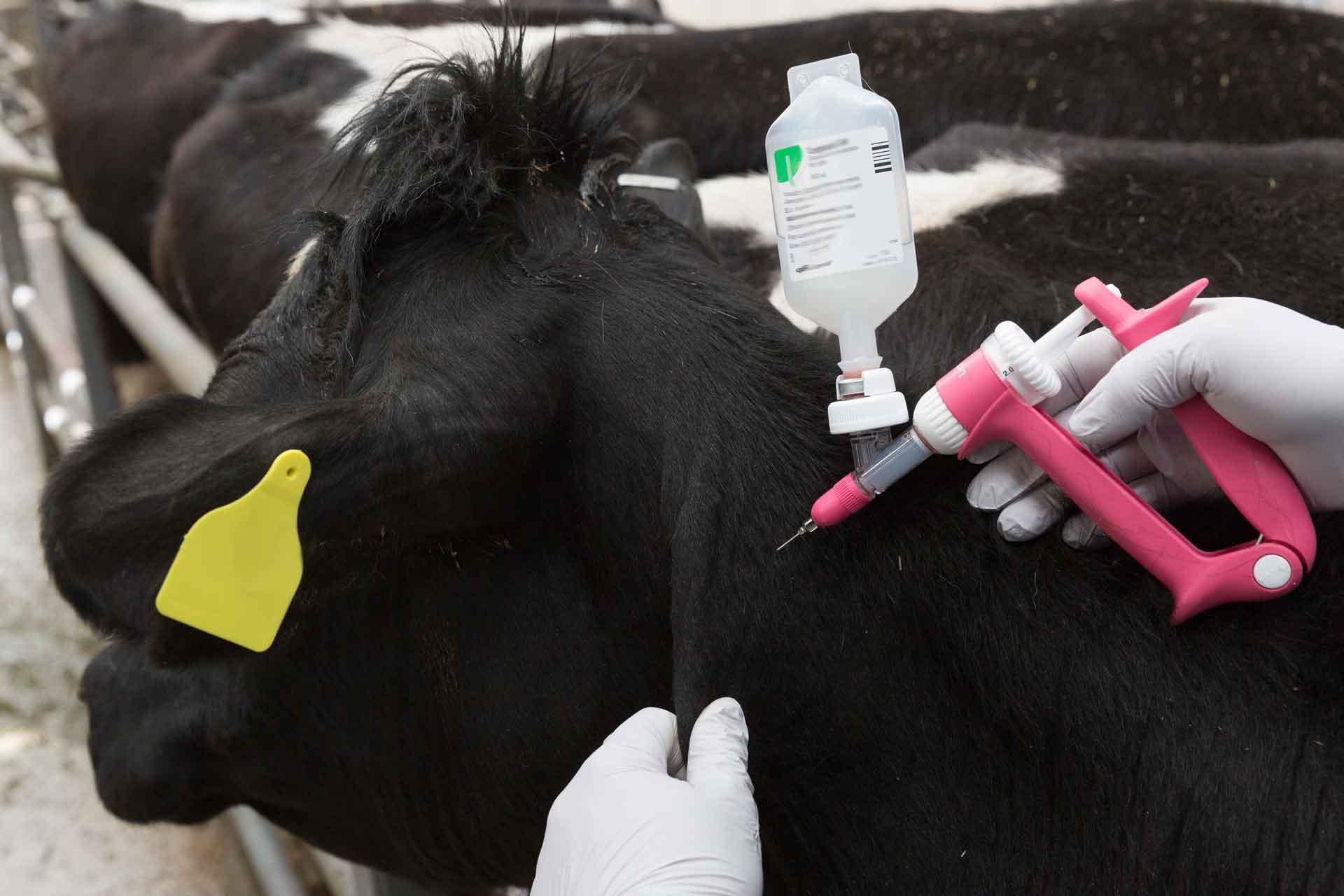Researchers in the UK, led by The Pirbright Institute, are to receive £3.1 million of investment from Wellcome and MSD Animal Health to produce a more affordable and effective vaccine that will protect animals against foot-and-mouth disease (FMD).
The funding will advance commercial production of a new, low-cost vaccine which has been shown in previous studies to be effective in protecting cattle against multiple serotypes of foot-and-mouth disease virus (FMDV). The new research aims to translate these findings into a commercially produced vaccine that will transform the lives of farmers in the poorest regions of the world by decreasing the incidence of disease in their livestock.
Dr Bryan Charleston, leader of the research and Director of The Pirbright Institute, said: “Whilst our initial research has provided proof of concept, this funding will allow us to answer the remaining product development challenges and further improve the stability of the vaccine.”
The vaccine is derived from virus-like particles (VLPs); i.e., FMDV particles that contain no genetic material. These are propagated in insect cells so production is not reliant on growing live infectious virus and is therefore much safer to produce. The VLPs have also been engineered to trigger the optimum immune response, as well as to be more stable; making the vaccine much easier to store and reducing the need for constant refrigeration.
FMD is endemic in large parts of Africa, South America, the Middle East and Asia. Globally it is the most economically important infectious disease of livestock, affecting cattle, pigs, sheep, goats and other cloven-footed animals. Countries where the disease is endemic suffer a huge impact on their national and international trade, economic and food security and devastating effects on animal and human health.
There is a massive shortfall in the availability of FMD vaccines, most strikingly in Africa, and there is a desperate need for a new affordable vaccine. “With several billion doses of vaccine administered every year, you can appreciate the relevance of our collaborative work.” Comments Professor Dave Stuart, Life Science Director at Diamond Light Source and MRC Professor of Structural Biology at the Department of Medicine University of Oxford.
The research team will join forces with commercial vaccine producer MSD Animal Health, to produce physically stabilised VLPs that can be produced for the current circulating strains of FMDV as well as emerging ones. The ultimate goal of this research is to substantially increase the availability of safe, effective and affordable vaccines to control FMD in the most severely affected areas world-wide.
